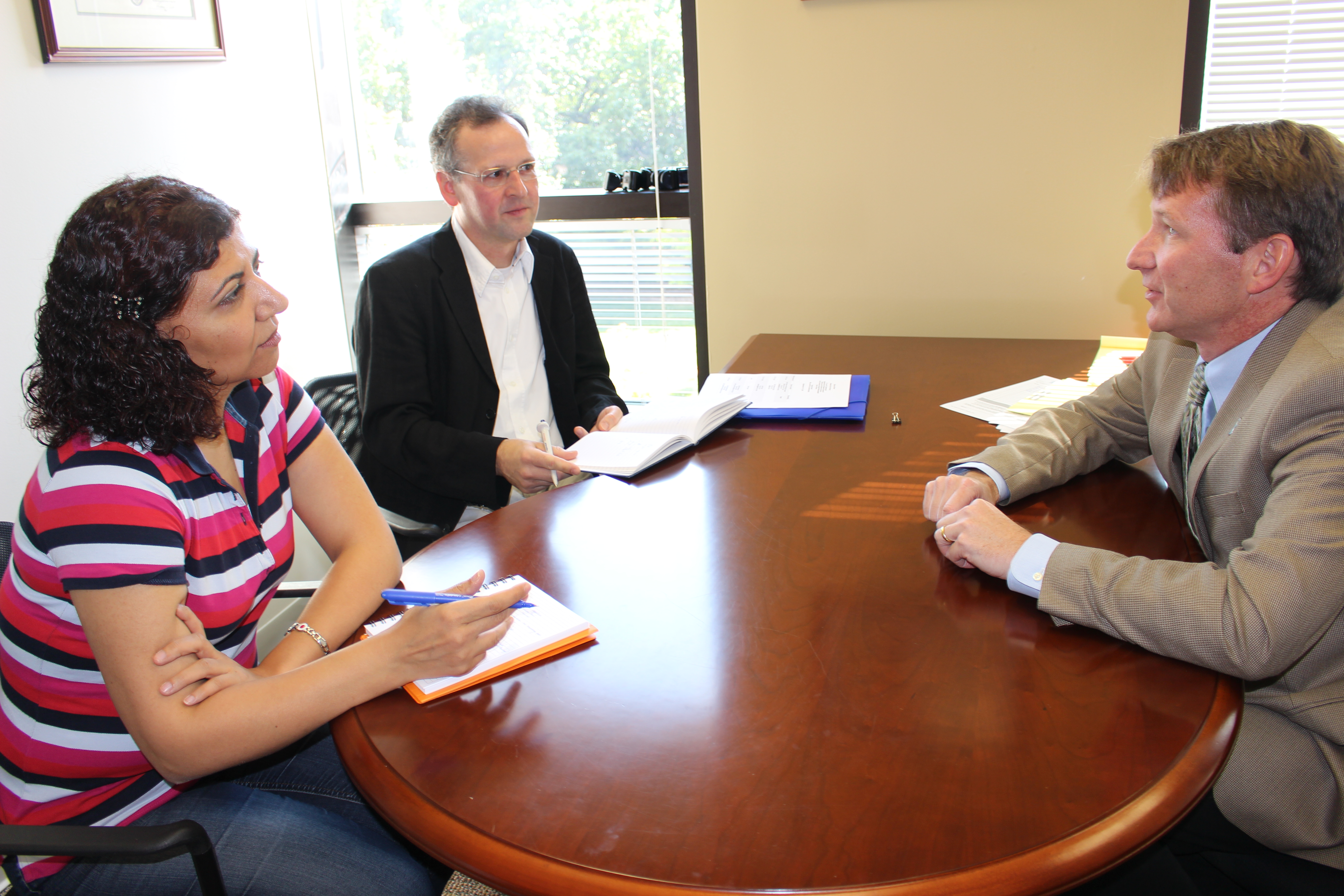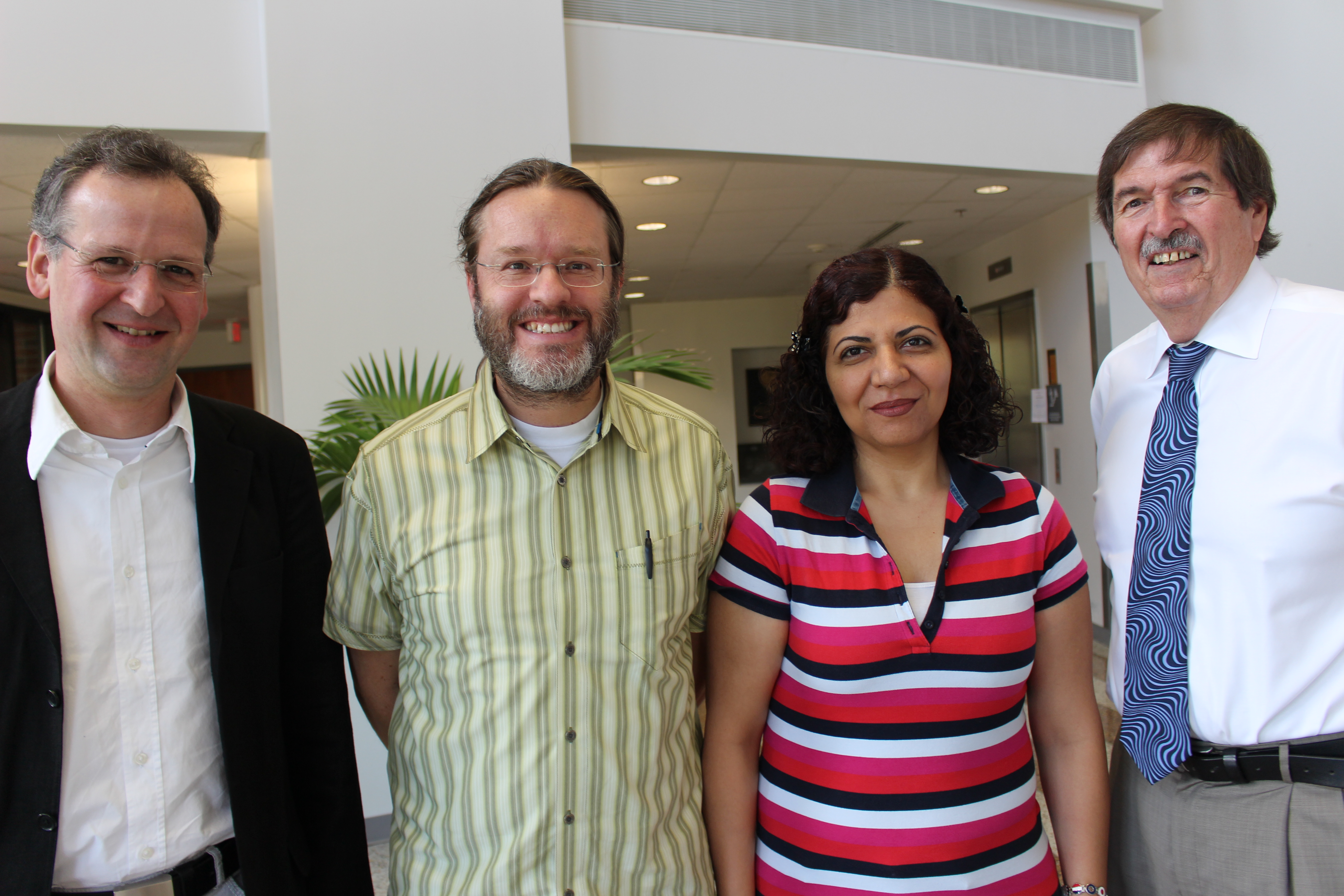Researchers from Norway visited UNC Lineberger Comprehensive Cancer Center to learn firsthand about UNCseq, a clinical trial launched in 2011 at the N.C. Cancer Hospital. In the trial, researchers use a profile of the genetic and molecular alterations in patients’ tumors to try to identify targeted treatments for them.


Strides made at UNC Lineberger Comprehensive Cancer Center in using genetics to make personalized cancer treatment decisions are setting an international example.
Researchers from Norway visited the cancer center starting on Sept. 16 to learn firsthand about UNCseq, a clinical trial launched in 2011 at the N.C. Cancer Hospital. In the trial, researchers use a profile of the genetic and molecular alterations in patients’ tumors to try to identify targeted treatments for them. Researchers from the Oslo University Hospital were looking to learn best practices as they try to build a genetic sequencing program for children in Norway.
“Genetic sequencing is the future of personalized medicine in cancer,” said Lars O. Baumbusch, PhD, MSc, a molecular biology researcher at the Oslo University Hospital Rikshospitalet in Norway. “We believe sequencing can help us to avoid over and undertreating patients. And from a research perspective, we believe it will help us to better understand cancer — why some children respond to drugs, and why others don’t respond at all.”
Baumbusch and Fatemeh Kaveh, PhD, MSc, a bioinformatics postdoc at the Oslo University Hospital in Ullevaal, met with UNC Lineberger researchers who are involved in analyzing sequencing data and in translating it into clinical practice. Kaveh said it’s helpful to see how others have solved bioinformatics problems ranging from computer storage issues to problems of how to match a patient’s tumor genomic profile to a reference.
“We want to build up our own knowledge competence in this field,” Baumbusch said. “It’s one thing to send our samples abroad for analysis, but we want to build our own expertise, as well as to learn what’s possible and what are the limitations.”
In Norway, the researchers launched a research project that will enroll 10 children with high-risk pediatric cancers. For this first group, they sequenced the tumors in Norway, but consulted with UNC Lineberger researchers for data analysis and clinical interpretation. They have also started a retrospective study of molecular changes in neurobolastoma in children using banked cancer tissue samples. Both projects are part of effort launched in 2012 called the Norwegian Pediatric Cancer Sequencing Consortium.
The collaboration with UNC Lineberger grew out of a connection with Monica Cheng Munthe-Kaas, MD, PhD, a pediatric oncologist at the University of Oslo. She was doing research in North Carolina at the Research Triangle Park-based National Institute of Environmental Health Sciences, which is one of the institutes of the National Institutes of Health.
While she was involved in a separate project at NIEHS, she said that UNCseq is exactly what she’s interested in — studying how to best integrate the latest knowledge and understanding of cancer genetics into clinical use.
“Further genetic understanding and classification is likely to have a large impact on individualized treatment in the future, with hope for improving the prognosis and care for those children with aggressive and difficult to treat cancers,” she said. “Also, childhood cancer is a rare disease, and international collaborations are very important both in terms of securing enough cases to actually be able to do research as well as sharing knowledge.”
D. Neil Hayes, MD, MPH, a UNC Lineberger member and an associate professor of clinical research in hematology and oncology at the UNC School of Medicine, said UNC has developed expertise in interpreting genetic data and for meeting regulatory requirements to make UNCseq possible. He said a difficult part of the trial is in interpreting the sequencing data. To help solve that problem, UNC launched the Molecular Tumor Board, which is a group of oncologists molecular pathologists, and bioinformatics experts who meet to discuss clinically actionable genes.
“The actual sequencing of samples is the easy part,” Hayes said. “But the interpretation of the results – only a handful of people on the planet can do it.”
Now the 2,000th patient has been enrolled in UNCseq, Hayes said.
“I think we think cancer is a genetic disease, so the ability to characterize tumors in terms of their genetics is fundamental,” he said.
